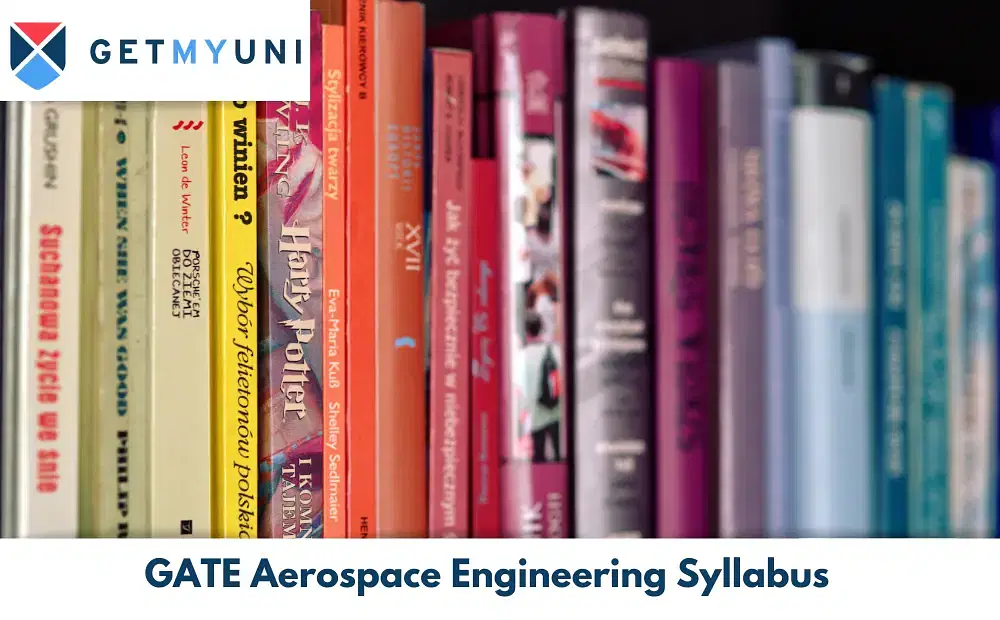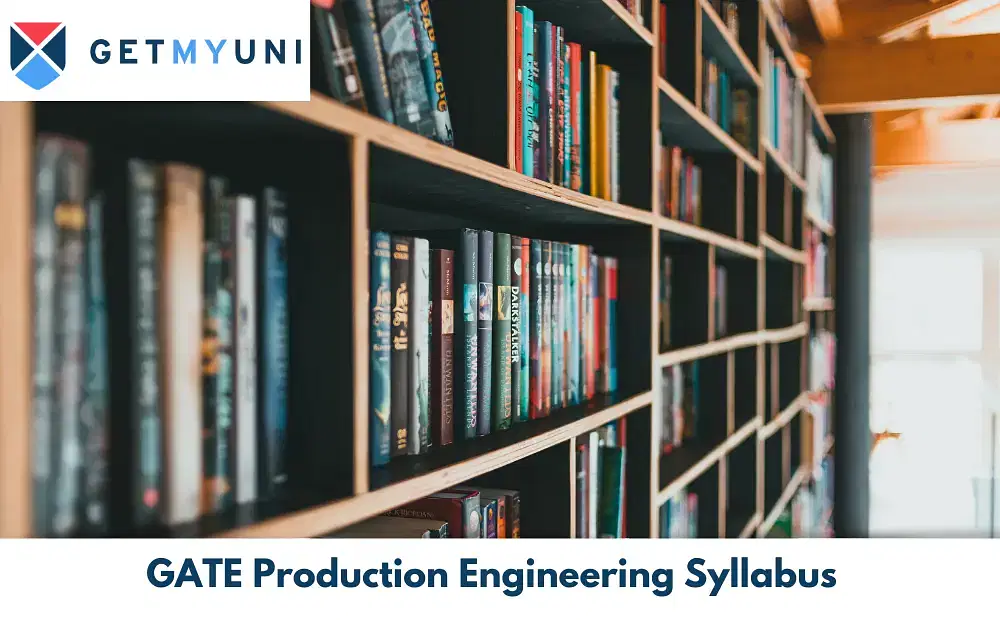M.Tech CSE is an advanced degree typically spanning over a period of 2 years, divided into four semesters. The curriculum is designed to provide comprehensive and specialized knowledge in the chosen field of study.
Table of Contents
“A scientist can discover a new star but he cannot make one. He would have to ask an engineer to do it for him.” – Gordon Lindsay Glegg, Author of Making and Interpreting Mechanical Drawings
Just finished your B.Tech and are torn between diving into the workforce or continuing on to M.Tech CSE? Let this blog be your guiding light in making that decision. The inevitable question of “what’s next?” looms large upon completion of your B.Tech and you may be finding yourself at a crossroads and feeling indecisive about whether to pursue an M.Tech after B.Tech – weighing the option of entering the workforce and embarking on a career in the corporate or IT world, or furthering their education by obtaining an M.Tech CSE degree. Well, fear not, for this blog is here to shed light on the perks of taking that next academic step. Let’s explore this degree and its benefits post-B.Tech.
About M.Tech CSE
If you are interested in advancing your engineering career and want to develop your leadership and project management skills, then an M.Tech degree also known as a Master’s in Technology, a prestigious post-graduate degree after completing a B.Tech program is a good choice. This advanced degree typically spans over a period of 2 years, divided into four semesters. The curriculum is designed to provide comprehensive and specialized knowledge in the chosen field of study. More importantly, this program is specifically tailored to enhance and broaden the technical and practical skills required to excel in the technical industry and advance one’s career.
By obtaining a Master of Technology degree, you can enhance your expertise, qualify for higher-level positions, and command a higher salary. Research shows that engineers with a master’s degree typically earn 20-30 percent more than those with a bachelor’s degree. Additionally, pursuing a master’s program allows you to establish a robust network with esteemed faculty and like-minded peers, providing you with a valuable resource for your future endeavors.
In this program, you will cultivate essential business acumen and communication skills, along with unparalleled technical expertise. These skills have consistently made graduates prime and highly sought-after recruiting targets for leading organizations such as Google, Facebook, and various startups. Given the demand for M.Tech graduates many prestigious international such as Massachusetts Institute of Technology [MIT], Stanford University and IIT, DTU, and Indian Universities like KK Modi University (KKMU), Durg are among the few Indian universities offering industry-relevant M.Tech programs. KKMU offers career-driven M.Tech specializations such as Artificial Intelligence, Cloud Computing & Virtualization, Computer Science Engineering, Cyber Security & Digital Forensic, Dev Ops, Full Stack Development, Image Processing, Information Technology, IoT, and UI/UX that provide both engineers and working professionals a well-rounded education that prepares them for life long success in the modern world.
You will receive intensive training through your coursework in engineering software, systems, platforms, and products, equipping you with the skills needed to tackle complex business challenges and address human needs. An M.Tech program offers rigorous technical courses covering fundamental principles in the field of computing/ engineering.
Here are some popular technical topics covered under the Master of Technology Degree:
| Algorithms and Data Structures for Applications | Data Mining |
| Applied Machine Learning | Distributed Systems |
| Blockchains & Cryptocurrencies | Human-Computer Interaction (HCI) |
| Computer Vision | Machine Learning Engineering |
| Cryptography | Natural Language Processing (NLP) |
| Cybersecurity | Networks & Markets |
Traditional And Contemporary Engineering Disciplines
The field of engineering is expansive and diverse, covering a broad spectrum of disciplines that utilize scientific principles to create, innovate, and sustain structures, machinery, materials, systems, and processes. Today, the engineering landscape has undergone significant evolution, with core disciplines persisting and often merging with cutting-edge technologies and interdisciplinary fields. Below is a breakdown of various engineering fields, encompassing both traditional and contemporary disciplines:
| Traditional Engineering Disciplines | Interdisciplinary Engineering Disciplines | Emerging Future-oriented Engineering Disciplines |
|---|---|---|
| Civil Engineering | Computer and Software Engineering | Energy Engineering |
| Mechanical Engineering | Biomedical Engineering Disciplines | Nanotechnology and Nanoelectronics Disciplines |
| Electrical Engineering Disciplines | Environmental Engineering Disciplines | Robotics and Autonomous Systems Disciplines |
| Chemical Engineering Disciplines | Materials Science and Engineering Disciplines | Space Engineering and Technology Disciplines |
| Data Mining Engineering | Sustainability and Green Engineering Disciplines |
Who Should Pursue M.Tech CSE
Graduates with a passion for technology and an interest in machine, software, or system development may benefit greatly from an M.Tech in Computer Science Engineering (CSE). This advanced degree offers opportunities for higher income and roles in multinational companies, and can support career growth for both new graduates and busy professionals through flexible study options.
Eligibility & Duration
To apply for an M.Tech, candidates need a B.Tech, MCA, or M.Sc in a related field. The program spans 2 years (4 semesters).
Specializations & Career Roles
Artificial Intelligence (AI)
Focus: Machine learning and NLP for predictive applications.
Roles: AI Architect, Researcher, Machine Learning Engineer
Cloud Computing & Virtualization
Focus: Internet-based resource delivery and virtualization technology.
Roles: Cloud Admin, Cloud Engineer, Cloud Security Analyst
Cybersecurity & Digital Forensics
Focus: Security mechanisms, threat detection, and digital evidence analysis.
Roles: Cybersecurity Analyst, IT Auditor, Ethical Hacker
DevOps
Focus: Integrating development and operations for faster software delivery.
Roles: DevOps Architect, Automation Engineer, System Engineer
Full Stack Development
Focus: Building complete web applications.
Roles: Full Stack Developer, Java Developer
Image Processing
Focus: Image and video analysis, computer vision.
Roles: Computer Vision Specialist, Machine Learning Engineer
Internet of Things (IoT)
Focus: Connected devices for automated systems.
Roles: IoT Developer, IoT Architect, Solutions Engineer
UI/UX Design
Focus: Designing user-friendly digital interfaces.
Roles: UX/UI Designer, UX Researcher, Product Designer
Choosing the Right Specialization
Start your engineering career on the right path by selecting a specialization that aligns with your interests, career goals, and market demand. Here are key factors to consider:
-
Follow Your Passion: Choose a field that interests you deeply. Passion will drive your commitment and success.
-
Evaluate Career Prospects: Research job opportunities in each field to understand roles and potential career growth.
-
Review the Curriculum: Ensure the program’s courses match your goals and provide relevant knowledge.
-
Consider Earning Potential: Investigate salary prospects to make an informed, financially sound choice.
By weighing these aspects, you can confidently pick a specialization that aligns with your goals.
Top Engineering Career Paths
Engineering graduates have access to numerous high-demand fields, including software development, data analysis, AI, cybersecurity, and sustainable engineering. Emerging fields with growing opportunities include AI, DevOps, and IoT. Below are some career options and approximate annual salaries (INR):
- AI Engineer: 15L
- Data Scientist: 12L
- DevOps Engineer: 10L
- IT Project Manager: 17.4L
- Software Engineer: 9.9L
Benefits of an M.Tech CSE Degree
An M.Tech CSE degree offers numerous advantages, from advanced skills and research experience to industry exposure and high earning potential.
-
Specialized Knowledge: Gain in-depth expertise in your field, preparing you for niche roles.
-
Hands-On Experience: Access internships, industry projects, and seminars to bridge theory and practice.
-
Higher Salary & Advancement: M.Tech graduates often earn 20-30% more than B.Tech peers and move into leadership roles faster.
-
Diverse Career Options: Pursue roles in AI, data science, or cloud computing, or move into non-technical fields like consulting or academia.
-
Preparation for Ph.D.: An M.Tech can be a stepping stone to a Ph.D. or research-oriented career.
With an M.Tech, you not only enhance your technical knowledge but also expand your career flexibility across industries.
Key Technical and Soft Skills for Your Resume
To thrive in an engineering career, mastering a blend of technical and soft skills is crucial. Here’s a breakdown of the essential hard and soft skills you need:
Technical Skills
-
Programming Languages: Key for fields like web development and machine learning. Languages like Python, Java, and C++ are essential, and you should learn those most relevant to your specialization.
-
Data Science: With the growing reliance on data, proficiency in machine learning, statistics, and software engineering is essential for extracting valuable insights.
-
Digital Marketing: Skills in SEO, content writing, and social media marketing can lead to job opportunities or even entrepreneurial ventures.
-
Cybersecurity: This skill is critical for protecting systems and data, requiring knowledge of programming and operating systems like Linux and Windows.
-
Software Development: Expertise in data structures, algorithms, and programming languages is crucial for creating innovative software products.
-
Cloud Computing: A solid understanding of cloud infrastructure and services like storage, servers, and databases over the internet is key for cloud engineers.
-
Artificial Intelligence: A foundation in computer science, programming, machine learning, and statistical modeling is necessary for AI professionals.
-
DevOps: Mastering automation and continuous integration tools can significantly improve software delivery cycles.
-
Blockchain: Proficiency in blockchain development, smart contracts, and decentralized databases is increasingly valuable.
-
RPA (Robotic Process Automation): Knowledge of RPA platforms and programming languages like Python and Java helps automate business tasks.
-
AR/VR: Understanding computer graphics, 3D modeling, and tools like Unity and Unreal Engine is essential for AR/VR development.
-
Technical Writing: Ability to document technical processes and projects effectively, ensuring clarity and understanding.
Soft Skills
-
Communication: Clear communication is essential for explaining complex concepts and collaborating with teams and clients.
-
Teamwork/Collaboration: Effective collaboration, especially in multidisciplinary teams, is necessary for project success.
-
Analytical Mindset: The ability to interpret data and draw insights is key in technical roles.
-
Creative Problem-Solving: Innovation in solving challenges is a vital skill that complements analytical thinking.
Strategies for Advancing Your Career
-
Choose the Right Specialization: Make an informed decision based on your interests and market demand.
-
Dual Specialization or Ph.D.: Consider pursuing dual specializations or a Ph.D. to deepen your expertise.
-
Accelerate Your Learning: Use transfer credits or lateral entry to shorten the path to your degree.
-
Internships: Gain hands-on experience and actively participate in internships to boost your career prospects.
By combining technical proficiency with strong soft skills, and adopting the right strategies, you can advance your career in engineering and tech.
Concluding Thoughts
In today's technology-driven world, the demand for skilled engineers is higher than ever. Pursuing an M.Tech in Computer Science and Engineering (CSE) is a strategic step for advancing your career and unlocking numerous opportunities. An M.Tech degree is not just an academic qualification, but a gateway to specialized knowledge, practical skills, and diverse career options.
KK Modi University, one of the leading institutions in Durg, provides an excellent platform to kickstart your tech career. By identifying your core interests and career goals, you can make the most of your M.Tech journey. Whether you're aiming for employment or further studies, KKMU offers specializations such as Artificial Intelligence, Cloud Computing, Cyber Security, Full Stack Development, IoT, UI/UX, and more, with the option for dual specializations.
Embarking on a career in engineering and technology is both exciting and rewarding, offering vast potential for personal and professional growth. Confidence in your decision will set you on a path to success. Let the KKMU Counsellors guide you through this important decision and help you achieve a bright and fulfilling future in engineering.














POST YOUR COMMENT